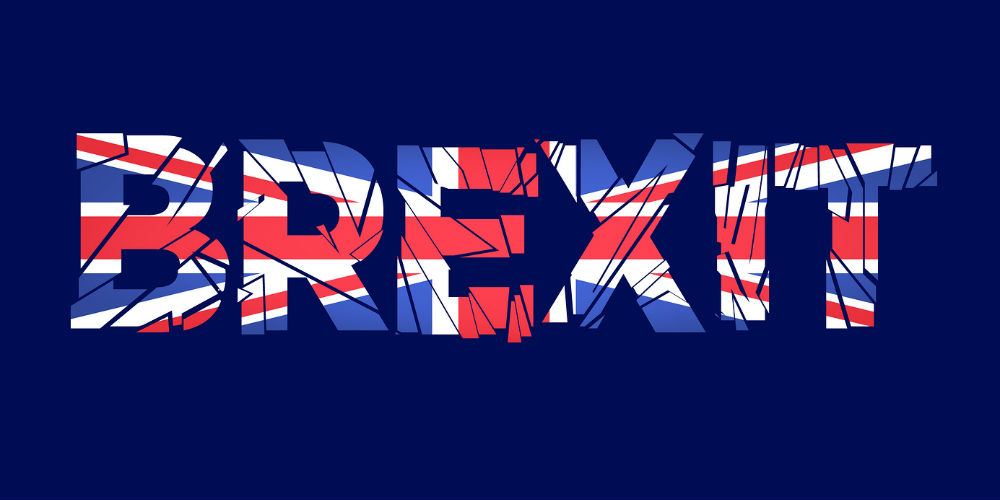Much ado about little: The Brexit

It’s only appropriate that we borrow a line (albeit paraphrased) from the Bard of Avon to describe our views about the recent Brexit vote. It should also be noted that the views expressed herein are those of the author, and do not necessarily represent the collective views of Rochdale Paragon Group (thus use of the term “we” refers to the author and the voices in his head).
First, a little history. The European Union (EU) owes its underpinnings to various narrower coalitions formed on the Continent since the end of WWII. The EU was phased in from 1993 to 2004, with the common currency, the euro, introduced beginning in 1999. So the EU is actually a fairly recent experiment (we recall still using francs on our first visit to Paris, in 2000, although euros were also accepted).
The UK rejected the notion of joining the precursor European Economic Community (EEC) initially, but after seeing its economy begin to lag behind other EEC nations, it applied for membership in the 1970s, but was twice rejected by a French veto. Only a change in the French presidency would allow the UK to join (an interesting point, in light of the recent howling by France and other members of the EU opposing the Brexit). However, the UK never adopted the euro, opting instead to retain the pound as its currency.
The Brexit referendum came about for three reasons:
- The British people were tired of a bunch of bureaucrats in Brussels making the rules for them. A rash of overbearing regulations governing everything from blow dryers to toasters, supposedly targeted at environmental concerns, had emerged from the EU leadership, and the British people decided enough was enough.
- British voters saw some of the weaknesses in the EU that failed to prevent the relatively more dire consequences of the most recent economic downturn in countries like Greece, Portugal and Spain than their EU counterparts (more on those later). And they no longer wanted to be one of the stronger countries (along with France and Germany) that would be called on to fund the next bailout of one of the “weak sisters.”
- Finally, the open-border policies that come with EU membership were of increasing concern to the Brits, given recent terror strikes in Belgium and France, and the crime waves in Germany that have been associated with various immigrant populations, which are increasing throughout the EU. In other words, the British wanted to be able to control their borders.
All of this should sound familiar to us in the US. The current election cycle appears to be about increasing concern over a central government that is flexing its federalist authority as never before, with a breakdown in bi-partisan cooperation that is eroding the system of checks and balances; an increasing conflict over wealth redistribution vs. income disparity (in other words, one group potentially being called on to “bail out” another); and increasing concerns over immigration, along with a desire on the part of many to increase border security.
Those emerging philosophical and political battlegrounds might represent one of what we believe are the three key ways the Brexit will affect the US:
- Should the Brexit ultimately succeed, other EU members will likely see calls for referendums on leaving the EU, and that could spill over into the US (although we’re not likely to see a “Texit” anytime soon). Still, the sentiment may shape the US political landscape – for better or worse – going forward. And, given the closeness of the Brexit vote, and the demographic breakdown between older Brits favoring and younger Brits opposing the leave – we could see an equal divide in US politics growing.
- Interest rates will likely remain low for quite some time, at least through the end of this year. Overblown (in our view) concerns about the impact of the Brexit on the global economy will lead an already dovish Fed to remain on the sidelines. The two-year Treasury yield has dropped 20 basis points (bp) since the Brexit vote – its lowest point since last October – while the ten-year yield has fallen by 30 bp to within a couple of basis points of its post-recession low four years ago, when QE was in full swing. And fed funds futures have priced in virtually no likelihood of a rate hike as far out as the contracts are being traded, into early 2018.
- Stock prices will likely remain stable, though volatile, so long as the Fed continues to prop up the economy and the equity market. The S&P has fully recovered from its immediate post-Brexit plunge. The FTSE has performed even better, rallying to a recent high. The French and German markets haven’t fared as well, largely because they see that they’re now acting alone as backstops for future bailouts of the “weak sisters” of the EU. However, they’re not in free fall.
(Regarding the last two points, a recent Bloomberg article pointed to the combination of rallying bond and stock prices as a mixed signal on the US economy. However, stock market performance since 2008 has been overwhelmingly attributable to accommodative Fed policy, rather than any indication of the economy’s relative health. Thus it comes as no surprise to us that expectation of continued extreme low rates would cause stocks to rally while bond yields fall.)
Before we get into our reasons why, in light of the three points above, the Brexit will prove overblown, we should note that we never believed the EU to have been a well-executed idea to begin with. There’s the fact that the UK was permitted membership without adopting the common currency. Then, we have an EU central bank – the ECB – trying to set monetary policy for the entire Eurozone, while each member country (including Greece) has its own central bank that may set policy in conflict with the ECB. That can’t work well (and didn’t, during the financial crisis). Finally, the idea of a large central European government, given the cultural and other disparities among European countries, was never broadly popular among EU members.
Here, then, is our argument for the Brexit being a long-run yawner:
- Britain – and the rest of the EU – was fine in terms of its economy, its security, and its governance prior to the EU, and it and the rest of the EU will be fine now, regardless of how this all shakes out.
- Despite recent bully-pulpit rhetoric from other EU nations (and Washington), the UK is unlikely to be punished economically or “pushed to the back of the queue” in terms of trade. The UK remains the world’s fifth-largest economy, a position that it held, interestingly enough, prior to the EU – in fact, it was fourth prior to the emergence of Japan and, later, China. It’s an important trading partner and financial center to the rest of the world, and our closest ally.
- Having said that, the UK’s GDP is slightly greater than that of California. It is dwarfed by US GDP. Some forecasters are ringing alarm bells over the possibility of a 3% subtraction from British GDP through 2020, and what that might mean for the US. The horror. (What it will mean, if it materializes, is great travel deals to London.)
- It’s unlikely that Northern Ireland and Scotland, whose voters favored remaining in the EU, will attempt to leave the UK. Those two countries’ history with England dates back to the time this writer’s ancestors were wearing kilts and swinging claymores at Edward Longshanks’ troops, but the Scots just voted against leaving the UK less than two years ago. They’ll grumble, as they always have, but union with England makes a lot more sense than union with the Continent, and has worked well.
- One anti-Brexit argument that we’ve heard voiced here in the US is that “the EU has kept down the wars.” (We should note our suspicion that those in the US opposed to the Brexit don’t really understand it, but oppose it because the leaders of their affiliated party oppose it.) There’s no evidence to support that notion. Since the end of WWII, the only conflicts on European soil have been in the aftermath of the Cold War, including the Romanian revolution, the wars in Kosovo and Bosnia, and some skirmishes involving Russia and some of its former territories. Conflict in those areas hasn’t slowed down much since the formation of the EU, and most of the nations involved aren’t EU members. Plus, one can hardly argue the EU had much influence on the end of the Cold War. There have been civil conflicts, such as The Troubles in Ireland and the Basque movement in Spain, but those have been addressed by the individual countries, with little or no EU involvement. (There was a skirmish between the UK and France in 1993 over fishing rights in the English channel; however, it was more argument than conflict. No lives were lost, though both sides experienced some thefts of fish.)
Thus we believe the most significant impacts on those of us in the US will be continued low interest rates (a boon for some but a curse for others), a continued strong equity market (albeit one propped up by Fed policy), and some potentially interesting implications for the emerging/growing political debate in the US (which would eventually have gotten there anyway). For the rest of the world, following some short-term volatility, it will have limited impact other than perhaps on Germany and France, should they find themselves forced to fund another bailout of a Greece or a Portugal.
(A final note: the Brexit is not a done deal, though it looks likely to be. The UK has to file Article 50 to initiate the process, which will take up to two years. Parliament could point to the narrowness of the vote as lack of a clear mandate, and oppose Article 50, but that would result in internal conflict they don’t want. However, if a new election to replace PM Cameron would result in a large victory for a pro-EU candidate, that could be taken as a mandate stronger than the Brexit referendum, which could give Parliament grounds to not file, or at least call for another referendum.)





